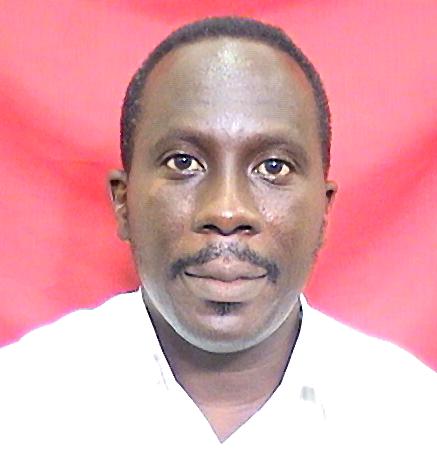Research Projects (Current and Past)
1. Development and optimization of point – of – use and conventional filter systems for the removal of contaminant anions (e.g. fluoride, nitrates, phosphates and chloride)
This research over the past seven years (from 2011 to date) have been focusing on sourcing and analysing of various filter media such as coated charcoal, bauxite, clays, coated sand, zeolites synthesized from bauxite -base ores etc. that could effectively remove contaminants like fluoride, chloride and nitrates in drinking water. Several filters have been developed and are being piloted in communities to assess their efficiency. Moreover the run time and regeneration of the developed adsorbents are being optimized for optimal performance.
2. Screening of water quality of surface water bodies and the impact of anthropogenic activities
Deterioration of water quality of most surface water bodies in the urban centres in the country has become a major issue of concern in the country. Surveys and screening of water quality of various streams in the urban centres and how anthropogenic activities influence quality has been investigated. From the survey, sources of contamination, extent of deterioration, mapping of water resources and quality index of the water bodies have been determined
3. Development of filters for removal of iron, manganese and arsenic (2006 to Date)
Until recently manganese and iron in drinking water has been a subject of aesthetic concern, but research has shown that chronic exposure to high concentrations of manganese (> 0.5 mg/l) can result in disease conditions similar to Parkinsonism. In view of this, stringent WHO guidelines have been put in place to ensure the prevention of health hazards and compliance by drinking water producers. Accordingly, the need for upgrading and optimization of existing manganese and iron removal facilities have become an issue of great importance. In this study several locally available filter media have been used to develop filter systems for the removal of iron, manganese and arsenic. Some of the Family filters developed have been operated on a pilot scale in other countries eg Bangladesh and monitored for their efficiency and long term performance in the removal of iron, manganese and arsenic.
4. Investigation on the impact of mining waste on the environment (eg. Water bodies) in the Western region
This study was carried out in the Western region with the objective of finding the extent contamination of water bodies by mining activities in the rural communities of the region. Presently the focus of this research has been to identify, nurture and develop naturall treatment system using various macrophytes for the remediation of heavy metal contaminated impoundments. The goal is to apply these system in areas of the country affected the illegal mining activites. Discharges from these illegal mining activities have polluted many surface water bodies and these systems being developed could be integrated into wetlands for the remediation exercise. This research has been running for the past three years ((2015 - to date)
5. Development of Technology Applicability Framework (WASHTEC :2011 - 2013)
Until recently, the introduction of WASH technology into the WASH sector in Ghana has not followed any formalised documented protocol. In this research an assessment framework has been developed by our research consortium team of WASH actors for screening new technologies. In additions guidelines have been developed to introduce new technologies in the WASH sector for successful uptake and scale up. This is a EU FP7 sponsored project. In this project conducted from 2011 – 2013, a Technology Applicability Framework (TAF) – a participatory evaluation tool that identifies blockages likely to impact on the overall sustainability, scalability and performance of water, sanitation and hygiene technologies was developed. In executing this FP 7 EU project various WASH technologies operational in Ghana, Burkina Faso and Uganda were assessed from the users, producers and regulators perspectives were investigated. Several sustainability dimensions such as the economical, technical, environmental, social, skills and know- how and Institutional & Legal issues were considered. Instrument used to acquire the needed information included designed questionnaire, interviews and observations and literature / desk studies. In executing the project, another procedural tool - the Technology Introduction Process (TIP) was developed. The TIP is a management tool that supports the sector in introducing WASH technology options in rural and urban areas.
6. Community Led Total Sanitation Assessment AND Sanitation Knowledge Management Initiative (2014 - to Date)
In this project typology of latrines and handwashing facilities built in the selected communities were surveyed and the reasons for the choice of latrine (such as cost, length of time of construction, technological and environmental challenges etc.) were investigated. The technological strength and weaknesses of household toilets with special emphasis on the structural integrity (for both substructure and superstructure) were assessed. In addition mechanisms to i) improve the safety and hygienic use of the toilets have been assessed. The investigations have been conducted in the Volta, Brong-Ahafo, Upper East and Northern regions of the country.
7. Development of contaminant removal systems for wastewaters from laboratories and vehicle washing bays (2015 - to Date) .
Wastewater discharges from various science and technical laboratories as well as those from vehicle washing bays are a menace in the environment. Huge volumes of these discharges go untreated to join existing water bodies. Some of these surface water are used for irrigation and serve as raw water sources for most of our conventional water treatment headworks. Treating these point sources of pollution at the generation points will help reduce the contaminant loads that end up in our water bodies. The goal of this research has been to analyse and develop remediation systems for these discharges.

